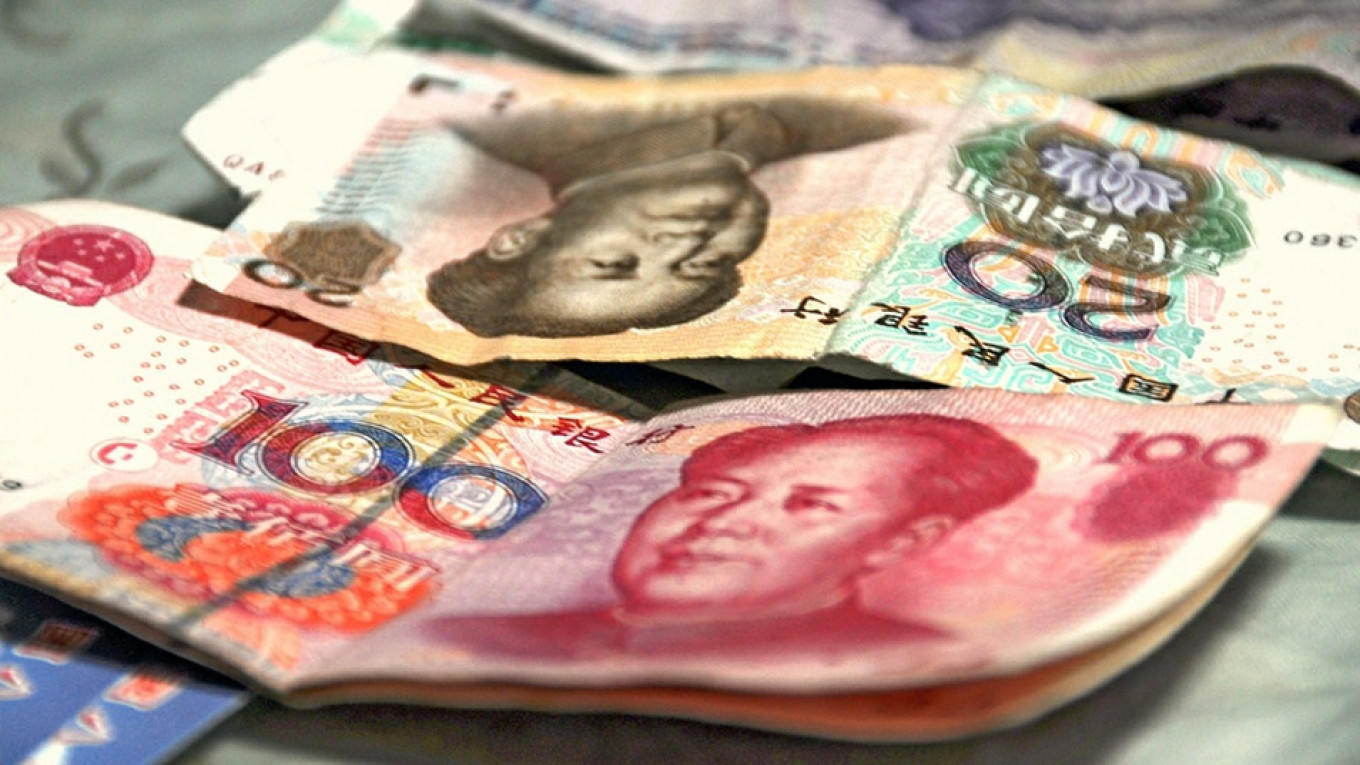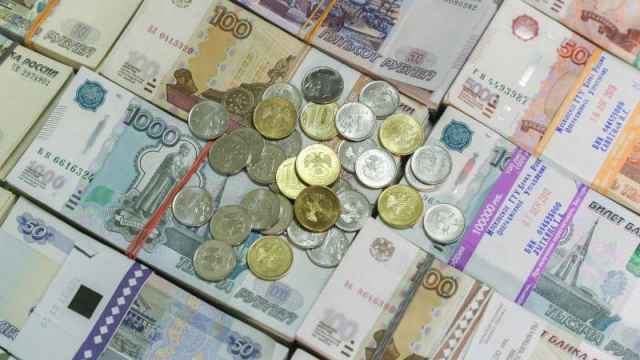The dismal performance of the Turkish lira (down 38 percent to the U.S. dollar so far this year) and the Russian ruble (down 14 percent) is strong evidence of how even relatively low-octane U.S. sanctions or the threat of harsher ones can hurt an economy. But could the U.S. be going too far with the weaponization of its economic advantage? Could its aggressive use of sanctions end up undermining the dollar’s global dominance?
To listen to the loud noises coming from Ankara and Moscow, that’s exactly what’s happening. “We are preparing to trade in our local currencies with the countries that we have the largest trade volume such as China, Russia, Iran and Ukraine,” Turkish President Recep Tayyip Erdogan said in response to the U.S. administration’s doubling of import tariffs on Turkish steel and aluminum and personal sanctions against Turkish officials.
Russia faces increased U.S. sanctions for a spate of adversarial activities against the U.S.; they could include a ban on the purchases of new Russian debt and affect Russian state banks’ ability to deal in U.S. dollars. So, visiting Ankara last week, Russian Foreign Minister Sergei Lavrov chimed in:
"I’m confident that such a gross abuse of the role of the U.S. dollar as a world reserve currency will undermine that role. To be on the safe side, more and more countries, even the ones that are not affected by U.S. sanctions, will gradually stop using the dollar and rely on more dependable partners with whom they can agree on using their currency."
Anton Siluanov, Russia’s finance minister and, as first deputy prime minister, the country’s most senior economic official, said, in turn, that he couldn’t rule out moving Russia’s trade in natural resources to a national currency basis. “Essentially, the U.S. dollar, which was considered the global currency, is becoming a risky instrument for settlements,” Siluanov said in a state TV interview.
Iran is the third country keenly interested in bypassing the dollar in its international trade; in fact, given the severity of the sanctions reimposed by the Trump administration, it has no other choice.
Dealing in a number of national currencies across borders is less and less of a problem as financial technology develops. University of California, Berkeley professor Barry Eichengreen has argued that the growing ease of switching between currencies undermines the dollar’s monopoly. The problem with this, though, is that the currencies can be highly volatile, as the ruble and especially the lira are showing this year. Stability is one of the advantages the dollar offers to importers and exporters. The likelihood that companies will help Erdogan and Siluanov realize their threats isn’t high.
Besides, according to the World Trade Organization, Russia, Turkey and Iran, big as they are, account for just about 4 percent of the global trade in goods (excluding trade between European Union countries) and some 3 percent of the trade in services.
Both Russia and Turkey have dramatically reduced their U.S. debt holdings in recent months, but that was a mosquito bite to the U.S. since their investments were dwarfed by those of countries such as China, Japan and Brazil. It’s even harder for them to shift a global paradigm in which most trade — theirs, too — is invoiced in dollars. They simply don’t have enough pull to change this.
That means they need a strong partner to lend market heft to their vocal dissatisfaction with the dollar. The European Union isn’t it: Neither Russia nor Turkey can rely on it much more than they can on the U.S., even despite their closer trading and political relationships with EU nations. Shifting trade from dollars to euros would create a new dependence on Western democracies with their inconvenient values and perhaps also add risk: The recent euro area economic crisis is neither forgotten nor quite overcome.
That pretty much leaves China, as interested as the three mavericks in undermining what it sees as the dollar’s unfair advantage. Boosting the renminbi’s international status would be a more realistic scenario for them than trading in national currencies: In this endeavor, China is the underdog, and it needs all the help it can get. Despite having raised the renminbi’s share of its trade settlements from zero in 2010 to 25 percent in 2015 and making it the second most popular currency in the world for trade finance (ahead of the euro), China faces an uphill battle in winning global share for its currency. In June 2018, according to Swift, the payment facilitation service, the renminbi’s share of global payments reached 1.81 percent compared with 39.35 percent for the dollar.
China needs to gain a bigger advantage over the U.S. in global exports for the renminbi to become competitive against the dollar. According to a paper published this year by Harvard University’s Gita Gopinath and Jeremy Stein, “if the gap between Chinese and U.S. shares in world exports widens far enough, we could eventually get to a point where a renminbi-dominant equilibrium becomes inevitable. At this point, the dollar’s share in global trade and finance could potentially decline quite sharply.”
If the anti-dollar mavericks shifted to the yuan for trade, they could help bring that moment closer. Unfortunately for them, such a shift carries short-term risks they can ill afford to shoulder.
This year, the Shanghai International Energy Exchange launched renminbi-denominated oil futures. While daily trading volume has increased sixfold since the March launch, the contracts turned out to be not for the faint-hearted, in part because of the renminbi’s exchange rate swings and in part because of their design disadvantages compared with global dollar-denominated benchmarks such as Brent and WTI futures. Putting one’s eggs in the Chinese basket can be costlier than still using the dollar for most trade.
For now, the Trump administration can act with impunity, imposing sanctions right and left: Even China’s enormous pull isn’t enough to get the anti-dollar bunch where it wants to be — in a world where the U.S. is powerless to punish them economically.
Leonid Bershidsky is a Bloomberg Opinion columnist covering European politics and business. He was the founding editor of the Russian business daily Vedomosti and founded the opinion website Slon.ru. The views and opinions expressed in opinion pieces do not necessarily reflect the position of The Moscow Times.
A Message from The Moscow Times:
Dear readers,
We are facing unprecedented challenges. Russia's Prosecutor General's Office has designated The Moscow Times as an "undesirable" organization, criminalizing our work and putting our staff at risk of prosecution. This follows our earlier unjust labeling as a "foreign agent."
These actions are direct attempts to silence independent journalism in Russia. The authorities claim our work "discredits the decisions of the Russian leadership." We see things differently: we strive to provide accurate, unbiased reporting on Russia.
We, the journalists of The Moscow Times, refuse to be silenced. But to continue our work, we need your help.
Your support, no matter how small, makes a world of difference. If you can, please support us monthly starting from just $2. It's quick to set up, and every contribution makes a significant impact.
By supporting The Moscow Times, you're defending open, independent journalism in the face of repression. Thank you for standing with us.
Remind me later.








